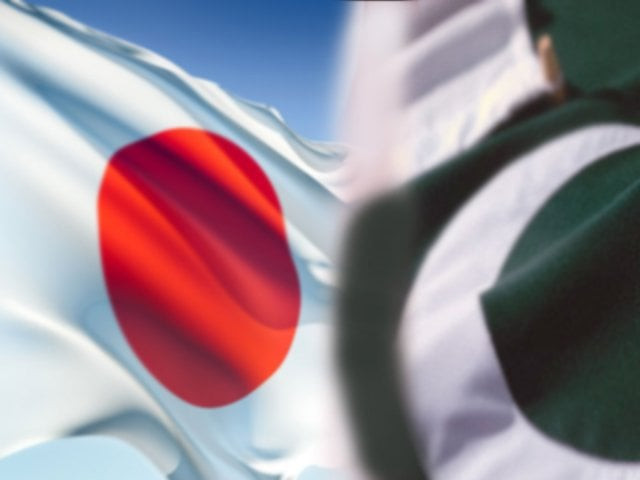‘I believe we can do more for the benefit of both countries’
Japanese envoy discusses trade, aid culture, and cooperation potential as diplomatic ties approach 65th anniversary

PHOTO: EXPRESS
As the Emperor of Japan celebrated his 83rd birthday late last week, The Express Tribune spoke to Japanese Ambassador Takashi Kurai about a host of topics including cooperation potential, aid, and cultural ties.
Cooperation potential
Ambassador Kurai started by noting that while the two countries have developed various levels and areas of exchanges, the potential for cooperation has yet to be fully utilised.
“I believe that we can do more for the benefit of both countries,” he said, explaining that in September 2016, there was a summit meeting in New York between Japanese Prime Minister Shinzo Abe and PM Nawaz Sharif, as well as a separate meeting at the foreign ministers level.

“It was one of the rare cases when we had separate meetings between the prime ministers and foreign ministers at the same time, but what we see here is the desire of both sides to have more contacts at political level, which should be further encouraged,” he said.
Economy
On the economic front, Japanese investment in Pakistan has been steadily growing. Last year it swelled to $74 million, up 100% from 2014.
Similarly, trade volume between the two countries witnessed double-digit growth for consecutive years, rising to $2 billion last year, he said, while adding that the IMF programme has been completed successfully and “we see positive signs for further development”.
He also noted that “further and continuing improvement of the security situation, which not only create better working conditions but improve the general perception about Pakistan, would further enhance the attractiveness of the Pakistani market to Japanese business community.”
On culture
From a long-term perspective, he said, cultural and human exchanges contribute further to a solid and stable relationship.
“It is worthy to note that next year marks the 65th anniversary of Japan-Pakistan diplomatic relations and we are working to organise events in cooperation with Pakistan in this respect.”
Meanwhile, Ambassador Kurai also noted that a sizeable Pakistani community, around 13,000 expats, are currently living in Japan, many of whom are engaged in trade relating to used cars, buses and heavy machineries.
“We can see many Japanese used cars in Pakistan, and some of them have markings of former users in Japan, such as small authorised stickers or the names of shops, schools, or other institutions. They were imported most probably by Pakistani dealers living in Japan.”
He also noted that Pakistani food is fast emerging as a new trend in Japanese dining.
“We see many Pakistanis opening restaurants in Japan these days,” he said, adding that, “Just 20 years ago, only a few Japanese knew what ‘nan’ or ‘seekh kebab’ were, but now, Pakistani and Indian food are among the options of our lunch or dinner.”
He also praised their efforts to join with local communities. “They are a part of the communities in Japan and getting its own status in our society,” he said, adding that they had been well-accepted by local communities.
“I have to mention in this regard that in March 2011, when Japan was hit by one of the heaviest earthquakes (Tohuku earthquake), Pakistani volunteers rushed to the places afflicted with the consequences of [the ensuing] tsunami and served Pakistani curry and rice to the Japanese victims,” he said, adding that the Japanese people would never forget the warmth, unpretentious manner and practicality of the support.
Education assistance
Every year, Japan’s Ministry of Education, Culture, Sports, Science and Technology (MEXT) offers various scholarship opportunities to Pakistani students.
Approximately 70 Pakistanis are currently studying in Japan under research, undergraduate and training scholarship programs of MEXT, the ambassador said, adding that it was needless to say that human resource development was vital in any society.
“We strongly encourage scholarship and training programs which promote professional training and help familiarise students with cutting edge and latest technology.”
He explained that for this, Japanese scholarship programmes help individuals in gaining practical experiences in their respective fields.
In this regard, he noted, “that to realise the difference in culture and ways of life…and to somehow accommodate them with the others already well known, or try to overcome them…all these efforts make people and societies develop. Diversity is one of the key words in our society for the development and the most important thing is to accept the difference rather than alienate it.”
On aid
Ambassador Kurai explained that Japan is promoting human security in developing countries. “The concept of human security is based on the idea that the key to ensuring growth in developing countries is to focus on each and every individual, foster his or her talent and ability, and build self-reliance.”
To this end, Japan had been implementing projects to improve welfare at the grassroots level through its Grants Assistance for Grassroots Human Security Projects (GGP) scheme in collaboration with the private sector and NGOs, which play a significant role to deliver supports to each individual. GGP has supported more than 350 projects in Pakistan with a contribution of over ¥2.6 billion ($374 million) since it began in 1989.
He said the main areas of focus of this assistance are basic and special education, primary health, vocational training and skills development, agriculture, and basic infrastructure such as drinking water supply systems, sanitation, communications infrastructure, and provision of electricity.
Published in The Express Tribune, December 26th, 2016.



















COMMENTS
Comments are moderated and generally will be posted if they are on-topic and not abusive.
For more information, please see our Comments FAQ